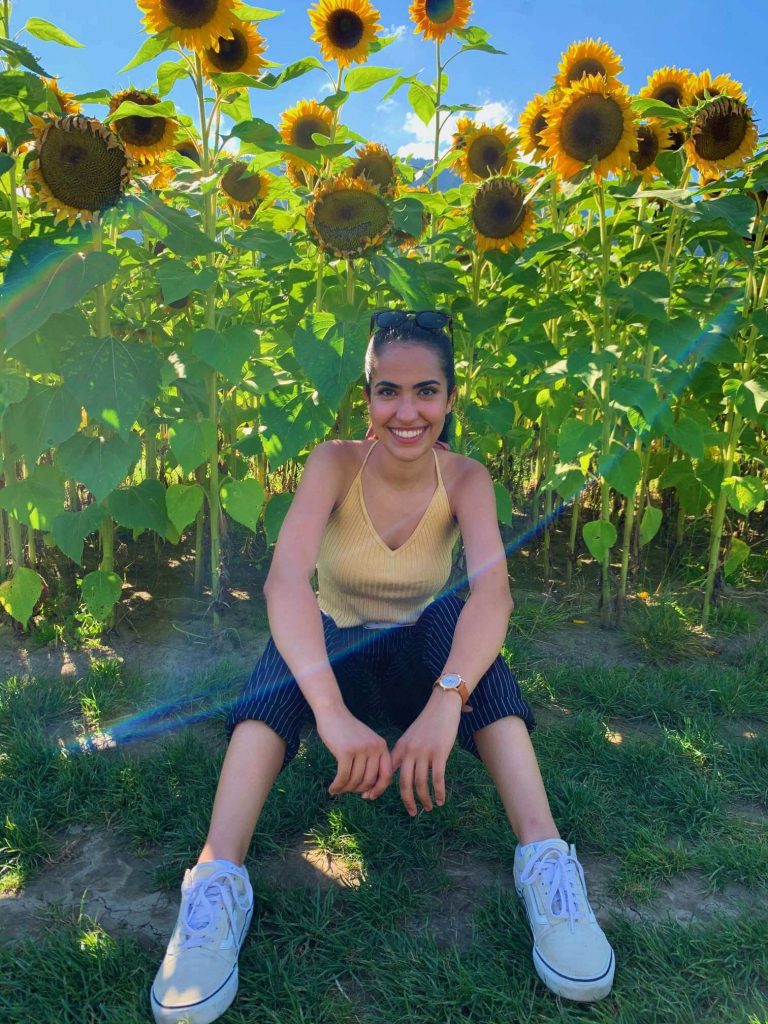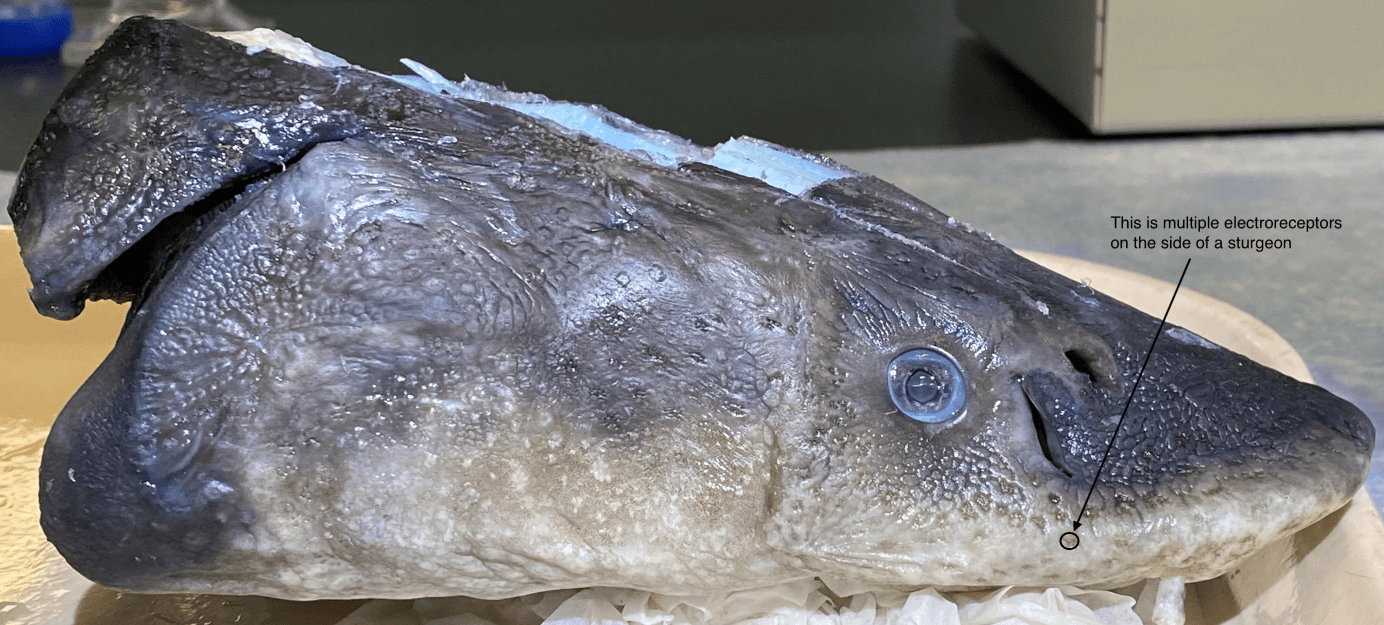
Hi! My name is Toktam (pronounced talk-tam) and I’m currently in my senior year at UBC majoring in Biology and minoring in Health & Society. I was born in Tehran, Iran and I’ve lived in Vancouver for most of my life, but I love traveling and exploring the world! I’m currently a part of the Leitch lab for my directed studies doing Zoology-based research and a research assistant at the Berman lab doing Public Health focused research.
During my degree, I received the Dean of Science Scholarship and have been a part of quite a few UBC clubs. I’ve been the Corporate Co-Director at UBC HOPE, the Treasurer at UBC Young Women for STEM, the Community Outreach Co-Director at UBC RISE, and the Vice President of the UBC Health & Society Minor Club.
What are you researching?
At the Leitch lab, I am researching how the peripheral and central nervous system is related to the lateral line system and electroreception system of white sturgeon fish. I’ve been analyzing the distribution of electroreceptors (they look like tiny holes spread across sturgeon heads) along the periphery of sturgeon bodies. I use a mapping technique to see where the receptors are concentrated to make inferences about how the peripheral system is organized. The next steps of my research include using staining to investigate the electroreception structures of the central nervous system and observing neural responses when sturgeons sense electrical activity in their environment.
Why is this research important?
The electro-sensory system has independently evolved or re-evolved in at least 6 different lineages, yet very little research has been done on sturgeon systems and their lineage. Sturgeons are very ancient chondrostean fish that diverged from bony fish and elasmobranchs a very long time ago, and they are the largest freshwater fish in Canada as well as a keystone specific in the Fraser River system. Knowing how their electroreception systems work and function helps us to better understand how they hunt and survive, and it allows us to better understand the phylogeny of electroreception in fish.
What do you most enjoy about doing research?
I really enjoy being able to use the knowledge and skills that I’ve learned in my classes to answer real-life unknown research questions. I like coming up with creative ways to find answers to gaps in knowledge and problem-solving until the research experiment gives a result. I’ve also had a lot of fun doing poster and oral presentations at the UBC Life Science Research Night and the UBC Multidisciplinary Undergraduate Research Conference.
What advice would you give to other students considering doing a research project?
I would say find a project and PI (Principal Investigator) that speak to your interests and make you excited to learn. There is A LOT of great research going on at UBC, which, I admit, can also be really intimidating. It helps to know that most PIs want passionate students to help them with their research. My main tips are: connect with professors in classes you’re taking and see if you like their research, look into which labs are doing research that align with your interests, and email PIs genuinely sharing why their research is interesting to you and why you want to be a part of it.
What do you like to do in your spare time?
Outside of school, I like to do acrylic painting with my friends, take care of my succulents, and play the acoustic guitar. I also love exploring the natural side of BC, so I try to find cool hikes during the summers and go kayaking whenever I can.
What are your plans following graduation?
After graduation, I’m hoping to work and volunteer while I pursue medical school. My goal is to go to UBC Medical School while continuing to work in the public health field and do research in neurodevelopment.
